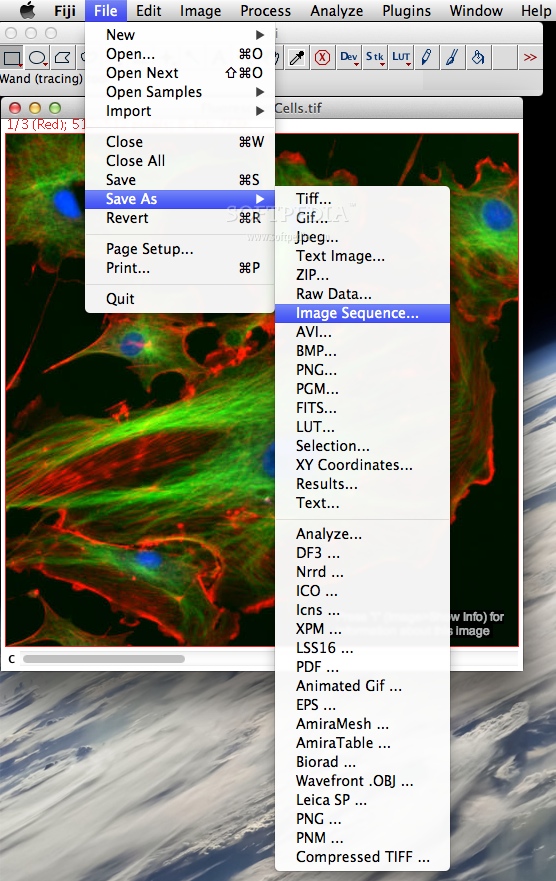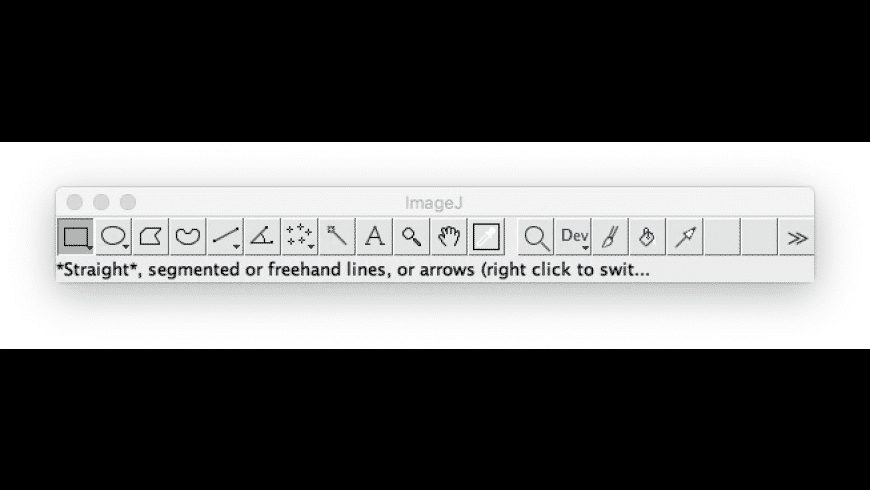- 5Other downloads
- 5.2Life-Line Fiji versions
Go to the ImageJ Download page, and download and install the application for your operating system. Click the ImageJ Download page and it will open in a new window. Click the link that appears directly below the name of your computer's operating system (e.g. Mac, Linux, Windows). ImageJ is an open source Java image processing program inspired by NIH Image. It runs on any computer with a Java 1.8 or later virtual machine. Downloadable distributions are available for Windows, Mac OS X and Linux. ImageJ has a strong, established user base, with thousands of plugins and macros for performing a wide variety of tasks. Download ImageJ for Mac to perform scientific pixel-by-pixel image processing and analysis. ImageJ has had 2 updates within the past 6 months.
Fiji is a distribution of ImageJ which includes many useful plugins contributed by the community.
Error creating thumbnail: Unable to save thumbnail to destination ~ Download Fiji for your OS ~ Error creating thumbnail: Unable to save thumbnail to destination | ||
|---|---|---|
64-bit | macOS | 64-bit |
| Other downloads | ||
Fiji is supported on the following systems:
- Windows XP, Vista, 7, 8 and 10
- Mac OS X 10.8 'Mountain Lion' or later
- Linux on amd64 and x86 architectures
However, Fiji (like ImageJ) should run on any system for which a Java 8 runtime is available (Solaris, Raspbian, etc.).
Packages for Debian / Ubuntu
We used to offer Debian packages of Fiji. Unfortunately, for a variety of reasons, we are withdrawing support for these packages until such time as someone is able to maintain them properly, so please switch to using the Linux downloads above instead.
If you are a Debian packaging expert who would like to address this situation, we would love to have your help—please join us in chat or on the forum.

Fiji is distributed as a portable application. That means that you do not have to run an installer; just download, unpack and start it.
- Many common questions are answered on the FAQ.
- If you encounter bugs, please see the Getting Help page.

See the source code page for details on obtaining the Fiji source code.
Nih Image J Mac
Archive
You can download previous Fiji builds by date stamp from the archive.
Life-Line Fiji versions
Imagej For Windows 10 Download
This sections offers older downloads of Fiji, preserved just prior to introducing major changes. The idea is that if something goes horribly wrong, you can fall back to a stable version.
Java 8
Here are Life-Line versions of Fiji created after the switch to Java 8.
| Date | Downloads | Description | |||||
|---|---|---|---|---|---|---|---|
| 64-bit | 32-bit | macOS | 64-bit | 32-bit | no-JRE | ||
| 2017 May 30 | Just prior to a sweeping update to nearly all components. | ||||||
Java 6
Here are Life-Line versions from before Fiji switched to Java 8.
| Date | Downloads | Description | |||||
|---|---|---|---|---|---|---|---|
| 64-bit | 32-bit | macOS | 64-bit | 32-bit | no-JRE | ||
| 2017 May 30 | The final version of Fiji using Java 6, for all platforms. | ||||||
| 2015 December 22 | Just prior to starting the transition to Java 8. | ||||||
| 2014 November 25 | Just prior to a big update to facilitate reproducible builds. | ||||||
| 2014 June 02 | Just prior to some big changes to ImageJ2 under the hood. | ||||||
| 2013 July 15 | Just prior to extensive changes reconciling Fiji with ImageJ2. | ||||||
Nih Imagej Download
See also
Download Imagej For Mac
- https://downloads.imagej.net/fiji/ for early versions of Fiji, and other miscellany.
- The main Downloads page, for a version of ImageJ without the Fiji extensions.